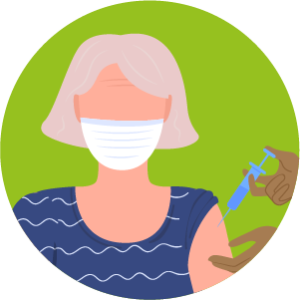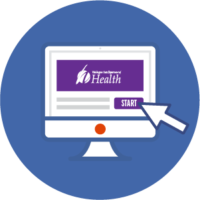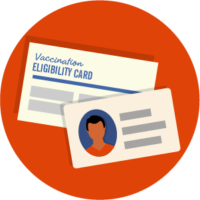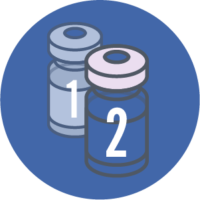
Eligible for a vaccine? Here’s what to expect.
There is a lot of anticipation and questions to be answered when it comes to getting vaccinated for COVID-19. While we’re still in the early phases of administering vaccines, it’s important for everyone to stay informed about the process no matter where they fall in the vaccination distribution.

Before getting vaccinated, visit Phase Finder / Encuentra Tu Fase to verify your eligibility by answering questions about your age and possible comorbidities. Please know that this information is not shared with anyone and is only used to assess eligibility. If you are eligible, take a screenshot or print your verification to bring with you to your appointment. If you are not yet eligible, be patient! Vaccine supply is limited but everyone that wants a vaccine will eventually get vaccinated.

If you qualify to receive a vaccine, contact your primary healthcare provider. You may be able to schedule an appointment with your regular physician. If vaccinations are not available with your doctor, the Washington State Department of Health created a Vaccine Location Guide with a list of vaccine providers by county and registration information. Vaccine supply is limited, but deliveries happen weekly so if you can’t find an opening, be sure to try again later.

Please be prepared to bring a photo ID and a printed copy or screenshot of your eligibility confirmation to your appointment. Every vaccination location may have different procedures so please double check with their requirements before coming to your appointment. In general, you will check-in for your appointment, fill out paperwork, and be directed to where you will receive your vaccine.

Most people experience a sore arm or some redness where the injection was given and even feel flu-like symptoms for a day or so. People have also reported side effects after the second dose such as fatigue, muscle and joint pain, fever, and headache, among other symptoms. These reactions have lasted only 24-48 hours after injection. There’s nothing dangerous or bad about these reactions and actually demonstrate your body developing an immune response. If symptoms persist longer than a few days, contact your primary care provider.

It’s important to receive both doses to give you the greatest protection against the virus that causes COVID-19. Keep in mind that the vaccines are not 100% effective, but if you do get COVID-19, they will help you from having a severe case that could require hospitalization.

After receiving your second dose, it’s important to keep practicing safety guidelines like wearing a mask, washing your hands, and maintaining physical distance in public spaces. Keep in mind that because of how vaccines will be distributed, not everyone will be able to be immunized right away, and some people may not be able to be immunized at all due to health issues. It will also take some time for our community to achieve the vaccinated level we need to reach herd immunity. By taking safety precautions, this will help keep those that haven’t received their vaccine safe from getting COVID-19.
For more information about the COVID-19 vaccines, visit: the SRHD Vaccination FAQ
Additional resources can be found here: Key Things to Know About COVID-19 Vaccines
